In APREA's Real Assets, Real People, we talk to a leader in the real assets industry to gain insights on their experiences and strategies for success.
Here's Anshul Singhal, Managing Director of Welspun One.
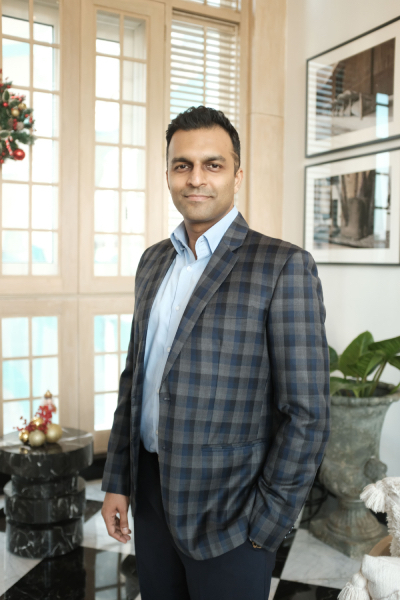
What inspired you to pursue a career in the real assets industry?
The logistics and warehousing industry caught my attention when I saw the critical need for modern, efficient infrastructure in India’s growing economy. My previous roles showed me how quality assets can accelerate business performance. I was inspired to build solutions that enhance supply chains and operational efficiencies while delivering long-term value.
Real estate, especially industrial and logistics, represented the perfect intersection of innovation, execution, and tangible impact. I wanted to go beyond constructing physical structures to creating infrastructure that drives India’s growth by solving inefficiencies and benefiting businesses, investors, and communities alike.
What are the key opportunities in the current real assets investment landscape?
India’s real assets landscape is brimming with opportunity. The surge in e-commerce has highlighted the need for sophisticated logistics infrastructure, from large distribution centers to last-mile delivery hubs. Multi-modal logistics parks, port-based warehouses, and temperature-controlled facilities are key growth segments as global supply chains adapt for resilience and speed.
Additionally, real estate’s emergence as a structured financial asset class, supported by AIFs, InvITs, and REITs, has unlocked new capital flows, while ESG compliance is driving demand for sustainable, eco-efficient buildings. By integrating these trends with technologies like automation and AI-driven analytics, we can create flexible, future-ready assets that address investor expectations and customer needs.
From a leader's perspective, how can companies navigate and thrive in an increasingly challenging business environment?
In today’s dynamic environment, adaptability is critical. Companies must embrace a customer-first approach, combining market intelligence with agile execution. This means listening to clients, anticipating their needs, and delivering solutions that go beyond expectations. A culture of innovation, supported by empowered teams, is essential for staying ahead.
The foundation of long-term success is based on data-backed decisions, strong governance, and a focus on sustainability. At Welspun One, we align every decision with our vision of building critical infrastructure for India’s future. This clarity of purpose allows us to navigate uncertainty with conviction while driving meaningful impact.
Can you share a notable success story or achievement in your journey as a leader?
Founding Welspun One during the peak of the COVID-19 pandemic was a defining moment. At a time when uncertainty was widespread, we raised India’s first domestic warehousing AIF entirely through virtual interactions, a testament to the clarity of our vision and meticulous preparation.
Despite operational challenges, we swiftly transitioned from capital-raising to delivering assets, including India’s largest sort center for Delhivery: a 700,000 sq. ft. facility completed amidst global supply chain disruptions. This project exemplifies our ability to execute complex initiatives under extraordinary circumstances, proving that a strong team, clear communication, and disciplined execution can overcome any obstacle. Today, Welspun One is India's largest and fastest-growing homegrown platform, delivering future-ready logistics infrastructure.
What lesson or advice can you share with fellow members in APREA?
Complacency is the greatest risk in our industry and any business. To consistently grow and evolve, staying curious, hungry for growth, and disciplined in execution is the only way to success. Therefore, one must -
In APREA's Real Assets, Real People, we talk to a leader in the real assets industry to gain insights on their experiences and strategies for success.
Here's Ondrej Sychrovsky, Member of the Board of Directors at ZDR Investments SG VCC.
ZDR Investments is a Czech-based real estate investor specializing in European daily needs-based retail parks and strip malls. They have recently launched a Singapore-based feeder fund. Thanks to its two-level structure (master-feeder fund), Asian investors can now benefit from a proven European investment concept aligned with their local investment environment. This initiative opens up new opportunities for investors looking to diversify their portfolio with European real estate while managing their investments within a familiar framework.
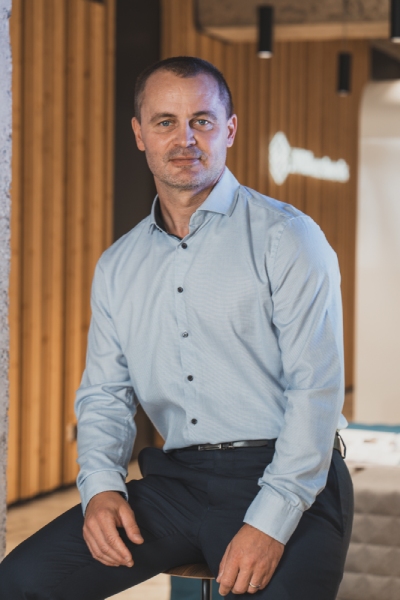
What were you doing before you started your career in real estate?
Before venturing into commercial real estate, I spent several years in both finance and media. My longest tenure, spanning more than a decade, was in a senior management role at the largest media house in the Czech Republic.
What are the key opportunities that you see in the current real assets investment landscape?
The real estate landscape is vast and varied, but one significant opportunity that unites it is ESG. Investments in photovoltaic systems, electric vehicle chargers, and energy optimization solutions have not only propelled us towards our net-zero goals but have also added value for both tenants and investors. For example, by installing solar panels in our retail parks, which make up the majority of our real estate portfolio, we have increased their value, benefiting our investors. At the same time, we offer tenants access to green energy, helping them reduce their energy costs.
From a leader’s perspective, how can companies navigate and thrive in an increasingly challenging business environment?
As the saying goes, “Fix the roof while the sun is shining,” which implies that companies should focus on strengthening their operations during prosperous times to remain resilient when challenges arise. For us, as an investment fund building a real estate portfolio, this means investing in diversification - across geographies, asset sizes, and tenant types. With a diversified portfolio and long-term contracts with international retail chains, we have managed to deliver stable returns to our investors, even during crises like COVID or economic downturns.
Can you share a notable success story or achievement in your journey as a leader?
One of our most notable recent achievements has been the expansion of our fund’s portfolio into a new country, marking the sixth EU market we’ve entered in our seven-year journey. Expanding into a new country is always a challenge, involving the navigation of different legal frameworks, cultural nuances, and market conditions. However, with strong partnerships, we successfully acquired not just one, but three properties for our master fund, bringing our total portfolio to 42 properties with SGD 630 million in AUM. This expansion has significantly enhanced the investment opportunities we offer to Southeast Asian investors through our Singaporean feeder fund.
What lesson or advice can you share with fellow members of APREA?
My key advice would be to stay active and engaged. APREA hosts numerous events throughout the year, offering opportunities not only to learn but, more importantly, to connect with industry professionals. As a European-based company, APREA has been instrumental in helping us build our network in the region.
Read MoreIn APREA's Real Assets, Real People, we talk to an influential leader in the real assets industry to gain insights on their experiences and strategies for success.
Our Deputy Chair for the APREA China Chapter shares how his experience in architectural design and urban planning sparked a passion for real estate, leading him to pursue a career in development, investment, and asset management. He also highlights key opportunities in
China's market, focusing on quality asset management and the integration of real estate with high-tech innovation.
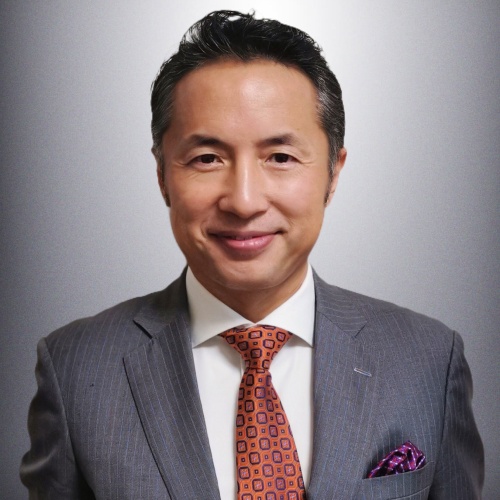
What inspired you to pursue a career in the real assets industry?
I was an architect practicing architectural design and urban planning while I lived in Boston, MA, USA. My boss happened to be an architect cum developer, and was commanding a team to work on his huge land development project in Boston area, I was amazed to see a panorama view of real estate from land acquisition, planning & design, construction to asset management, my eyes were wide opened by this colorful & diversified real estate world, which lead me to pursue my career expanding into real estate development, investment and asset management.
What are the key opportunities that you see in the current real assets investment landscape?
Although the real estate industry in China has gone through a storm and undertaking a major paradigm shift at the moment, I still think there are opportunities in the market based on its capacity and consumption power, areas like quality asset management, opportunistic investment and C-REITs are directions that could create significant return if planned and executed at right timing and angle. Also I pay great attention to the combination area of real estate & hi-tech, not only the sophistication of science park or mixed-use asset but also the link between real estate and updated hi-tech development.
From a leader's perspective, how can companies navigate and thrive in an increasingly challenging business environment?
I would pay great attention to two aspects: business model and team quality. Companies shouldn’t be rigid and need to adept to the changes occurred in real world, stay hungry stay fool is the right attitude. Accompanied with the right business model we need quality team to plan & execute, and eventually make the success.
Can you share a notable success story or achievement in your journey as a leader?
Since 2014, as a real estate investment and asset management firm, we have been selected as Host Company with Harvard China Fund for their Harvard Greater China Student Internship Program, in the past 10 years, our team has been hosting Harvard College Students and let them experience modern China through their internship placements and gain an introduction to Chinese history and culture, all while practicing in the real estate workplace. We are proud to see our interns grow up, while still keeping the beautiful memories of the time we spent together.
What do you do for fun?
Travelling is my passion as well as reading and jogging, it’s always fun when you see the new world, talk (read) to new smart person, and same time keep your mind and body fresh to embrace a new day.
Read MoreIn APREA's Real Assets, Real People, we talk to an influential leader in the real assets industry to gain insights on their experiences and strategies for success.
Here's James Ong, Chief Strategy Officer of Tsao Pao Chee.
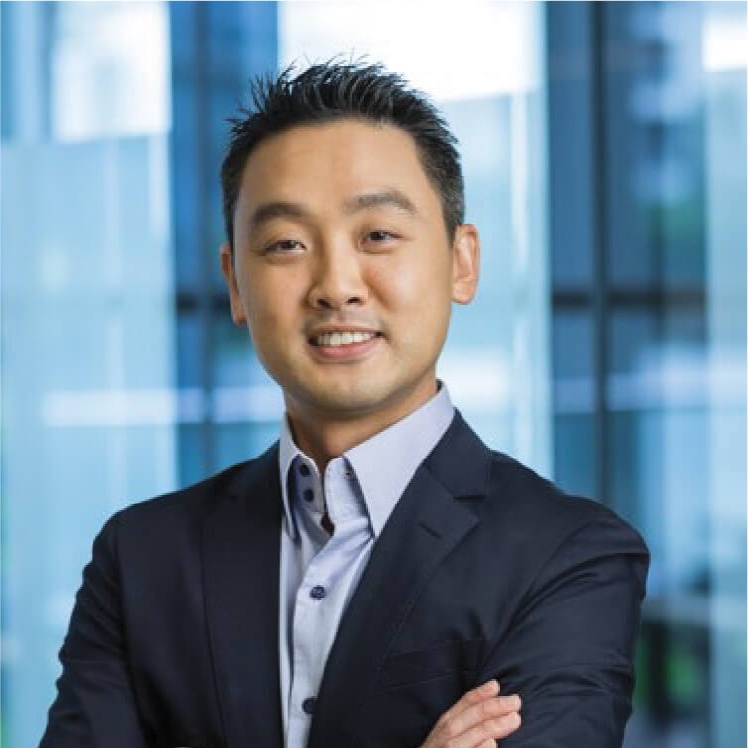
What were you doing before you started your career in real estate/infrastructure?
I started my career in private banking in 2003 but quickly realised sales wasn't my passion. This led me to transition into investment banking, focusing on M&A deals and project financing. In 2006, I helped establish the Asian arm of Oppenheimer Investments, gaining extensive experience in project financing within the real estate and infrastructure sectors. Over the next decade, I honed my skills in executing M&A deals as an in-house corporate finance professional. At TPC, I initially focused on M&A, successfully applying my previous experience. My career has evolved over the past 20 years from private banking to a deep specialisation in investment banking, culminating in my current role as Chief Strategy Officer at TPC. This diverse background has provided me with a unique perspective and a robust skill set for our strategic initiatives.
What inspired you to pursue a career in the real assets industry?
My interest in real assets was sparked when I was managing warehousing assets for the largest privately held logistics operator in Southeast Asia. I found the process fascinating as it involved developing something from the ground up and putting it into operation. Seeing actual goods and products flowing through the system, and knowing that these are items we use in our daily lives, was incredibly satisfying and motivating.
What is a typical day for you?
My day typically starts at around 6:15 AM when I get up to send my three kids to school. If time permits, I enjoy going for a short run around the Botanic Gardens before heading to work. My workday is usually filled with meetings, and in the evenings, I often attend networking events, usually about two to three times a week.
What are the key opportunities that you see in the current real assets investment landscape?
At TPC, Japan has been a key focus market for the past year and a half, and it will continue to be. We see unique opportunities in the market but are aware that the window of opportunity may be narrowing. Besides direct investments in Japan, we are also exploring more deals involving real estate structured products. These products offer an additional level of security with attractive coupon rates.
From a leader's perspective, how can companies navigate and thrive in an increasingly challenging business environment?
I believe that elevating the consciousness of our people can make a significant difference in how we work and live. As Albert Einstein once said, "No problem can be solved from the same level of consciousness that created it. You must learn to see the world anew." At TPC, we run programmes aimed at raising the consciousness level of our employees, which we believe will help us usher in and navigate the new era of purpose-led business.
Read MoreIn APREA's Real Assets, Real People, we talk to an influential leader in the real assets industry to gain insights on their experiences and strategies for success.
Here's David Tibbott, Managing Director of IOI Properties Singapore.
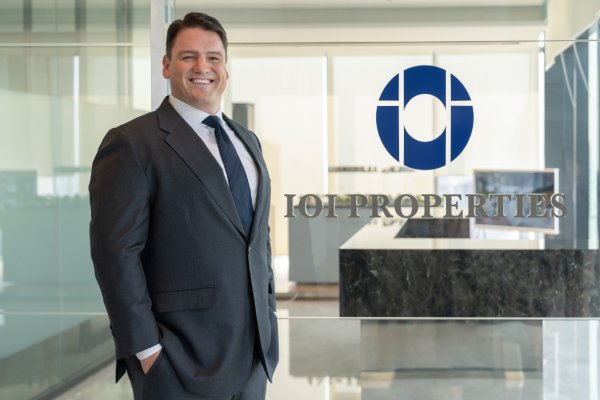
What were you doing before you started your career in real estate/infrastructure?
I was a professional rugby player in the UK and studying at the University of Cambridge at the same time. It was a challenge balancing academics and athletic commitments, but that didn’t stop me from graduating with a Master’s degree in Real Estate Finance.
Who inspired you to pursue a career in the real assets industry?
My father. He owned a real estate consultancy firm that provided advice to businesses on large scale developments and tourism initiatives across Europe. It was an obvious decision to transition from professional sport into the dynamic landscape of real estate.
What is a typical day for you?
My day varies significantly, interacting with my leasing team, the marketing agency community and both prospect and committed tenants. I’ll also work with our property management team as we have been commissioning the building for public and tenant use, as well as handing over to tenants to commence fitout. There are also other HR and corporate interactions on a daily basis, as well as exploring opportunities for the business as and when they arise.
What do you do for fun?
Anything sports related since it has been a huge part of my life. Skiing, cycling, tennis and swimming are my go-to activities these days since I’m too old for contact sports like rugby. I have a young family now, so my wife and I try to engage our kids with sport as much as possible.
What lesson or advice can you share with fellow members in APREA?
I have been fortunate enough to gain a breadth of experience and insight across a variety of companies throughout Asia (Hong Kong, Guangzhou, Bangkok, Phnom Penh, Singapore, Jakarta & Hanoi). They are all very culturally different but making the effort to develop and maintain good personal relationships is one key advice I could give. The world of real estate is small and it is a people business.
Read More